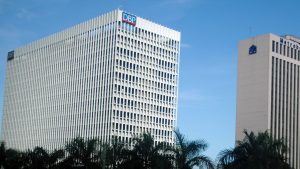THE BANGKO SENTRAL ng Pilipinas (BSP) is open to granting state-run Development Bank of the Philippines (DBP) further regulatory relief if they are able to “strongly” justify the need for it.
“Of course, they have to justify. We need to see and assess, is it reasonable? So, the justification, we have to assess,” BSP Deputy Governor Chuchi G. Fonacier said in a seminar over the weekend.
“But the openness as to considering it, of course it’s there because they can submit, but… they should really justify it. It’ll be a very strong justification.”
DBP President and Chief Executive Officer Michael O. de Jesus last month said they plan to request for regulatory relief again this year to boost its capital position.
Mr. De Jesus said they expect to have met the required minimum capital ratios in 2024, but they want to continue ramping up their buffers.
State-run lenders DBP and Land Bank of the Philippines (LANDBANK) had sought regulatory relief from the central bank following their contributions to the Maharlika Investment Corp. (MIC). DBP and LANDBANK were mandated to contribute P25 billion and P50 billion, respectively, as the initial seed capital for the MIC, which they remitted in September 2023.
For its part, LANDBANK has said it is not planning to request for further regulatory relief amid its “sound financials.”
“All this regulatory relief, it’s time bound. That’s why we can say it’s reasonable because it’s time bound. Once they request for more time, that’s where we go in to assess if it’s justified to extend. We’ll look at that,” Ms. Fonacier said.
She said the central bank considers several metrics when granting regulatory relief, such as capital adequacy, loan portfolio, past due and nonperforming loans, and the bank’s overall performance.
“We have to assess if it’s justified to grant an extension… It should really be prudence [that’s] the first consideration, because otherwise, if it’s not prudent, … it’s no longer safe,” Ms. Fonacier said.
“It also depends on the condition and the factors that they are in. LANDBANK’s case is different, DBP’s case is different — that’s why we can’t compare them, because to begin with, their sizes are different,” she added. “We really look at it on a per institution basis, but also we need to take a look at what is the impact on the entire system, because if it’s no longer resulting in a level playing field, then there’s something there.”
In a recent report, the International Monetary Fund (IMF) called for the restoration of capital for the two state banks after their contributions to the MIC.
The IMF noted the importance of capital restoration and exiting regulatory relief “as soon as possible.”
The House of Representatives last week approved on third and final reading a bill that will replace DBP’s current charter to raise its authorized capital stock and allow it to conduct an initial public offering.
House Bill No. 11230 repeals DBP’s almost 27-year-old charter to raise its capital stock to P300 billion from the current P35 billion. The Senate okayed its counterpart version of the measure in September 2024.
Both House and Senate versions of the bill allow the government to sell DBP shares to the public, provided that it retains a 70% stake. They also mandate that 10.67% or P32 billion of the bank’s shares should be subscribed to and paid by the government.
DBP’s net income declined by 8.95% year on year to P4.68 billion in the first nine months of 2024 amid lower foreign exchange gains. DBP Senior Vice-President Catherine T. Magana last week said they expect to have ended 2024 with a net profit of about P7 billion.
The bank’s net earnings are seen to reach about P7.3 billion this year, Ms. Magana added. — Luisa Maria Jacinta C. Jocson
